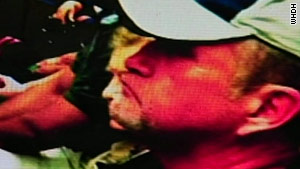You’d think if you are walking down the street, riding the bus, or in a store, it’d be illegal for someone to take a photo up your skirt or down your shirt without your permission, right?
Well, when Stop Street Harassment produced a state-by-state Know Your Rights toolkit about street harassment and the law, we found that wasn’t always the case. One of the laws that varied across states were voyeurism-type laws. Typically, these laws protect you from being photographed or recorded against your will at your home and in places like dressing rooms, tanning salons, and public restrooms. Many states have updated these laws to outlaw “upskirt” and “down blouse” photos, such as if a woman is standing in a public space and a man takes a photo down her shirt, or if she is walking up stairs and a man takes a photo up her skirt. But not all states have.
Massachusetts was a state where the law seemed a bit open to interpretation. When SSH intern and lead author Talia Hagerty wrote that state’s page, their law was in fact making its way through the court system to bring forward clarification.
Unfortunately, today, the highest court in Massachusetts ruled that upskirt photos are…. LEGAL!!!
“The ruling came in the case of Michael Robertson, who was arrested in August 2010 by transit police who set up a sting after getting reports that he was using his cellphone to take photos and video up female riders’ skirts and dresses.
The high court ruled that the law that prohibits “Peeping Tom” voyeurism did not apply to pictures taken of people who are fully clothed.
“A female passenger on a MBTA trolley who is wearing a skirt, dress, or the like covering these parts of her body is not a person who is ‘partially nude,’ no matter what is or is not underneath the skirt by way of underwear or other clothing,” the court said in its ruling.
The SJC says while such actions should be illegal, the way state law is written they are not….
“The ruling of the Supreme Judicial Court is contrary to the spirit of the current law,” said Massachusetts House Speaker Robert DeLeo. “The House will begin work on updating our statutes to conform with today’s technology immediately.”
Senate President Therese Murray said she was “stunned and disappointed” with the court ruling. She said the Senate will respond quickly.
“We have fought too hard and too long for women’s rights to take the step backward,” Murray said in a statement. “I am in disbelief that the courts would come to this kind of decision and outraged at what it means for women’s privacy and public safety.”
Gina Scaramella, executive director of the Boston Area Rape Crisis Center, said such photos are a serious invasion of privacy. She said the law needs to catch up to technology.”
Yes, it does!
The good news is, many people recognize the need for a better law.
“Sen. Katherine Clark submitted legislation on Beacon Hill to refine the language of the “Peeping Tom” laws to make them less ambiguous. In her proposal, Clark recommended adjusting the wording in the current state law so that it reflects technological changes such as the use of cameras on phones, and increases fines for those convicted of violating the law. Clark also wanted to include the words “intimate area” to the state’s law, so that even body parts covered by clothing—like underwear—would be protected. That definition would cover “human genitals, buttocks, pubic area, or female breast below a point immediately above the tip of the areola, whether naked or covered by undergarments.”
If you agree that people in Massachusetts should have the right not to have their private parts photographed without their consent, here’s a petition you can sign.
For more on this story, visit Hollaback! Boston’s blog and for more on the topic read an article on Time Magazine from a few months ago.



